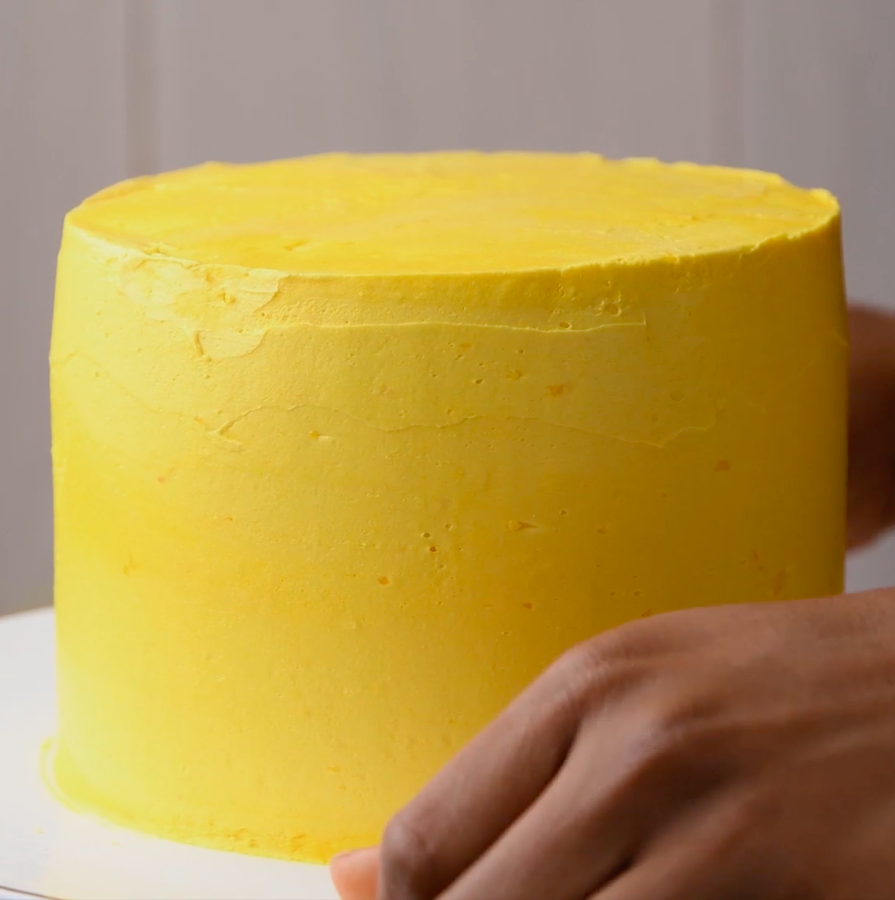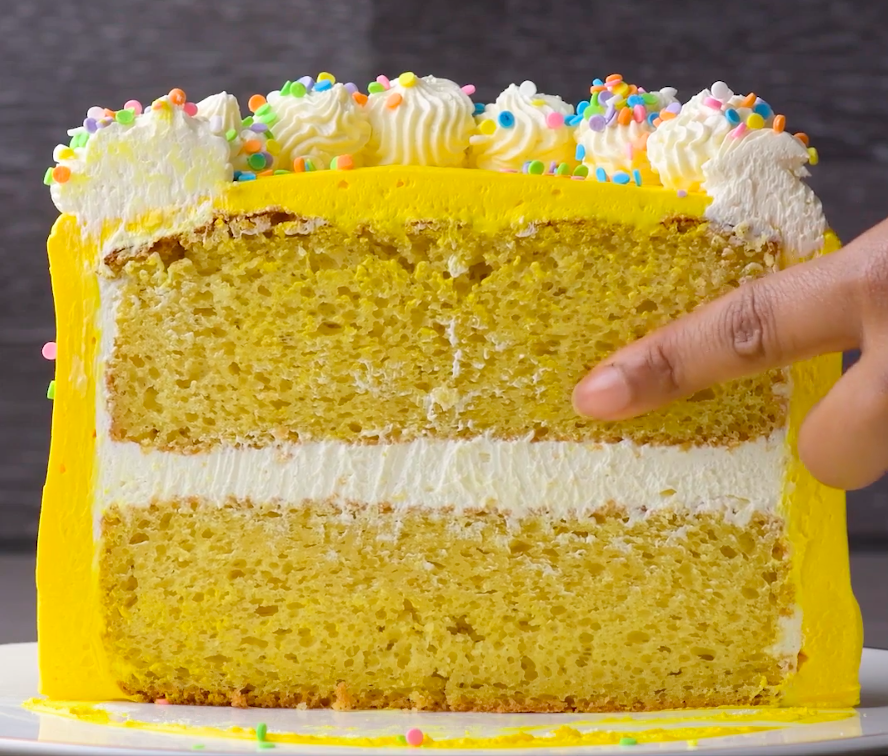[video_quote pvideo=”HZ84ABpI” video=”HZ84ABpI” text=””]
Cheesecake Cutting Technique

So Yummy
Directions:
Wrap a knife in a piece of parchment paper and slice the cheesecake, removing the knife and leaving the parchment paper in between the cheesecake slices. This hack will keep your knife clean and will divide your cheesecake in pieces, so can decorate each slice differently without messing up the other parts.
Frosting Mirror Glaze

So Yummy
Directions:
Place two pieces of dark chocolate and milk chocolate into a store-bought tub of frosting. Microwave for 30 seconds. Pour melted frosting on the cake.
Fork Stencil

So Yummy
Directions:
Poke words on top of the cake using a fork. This hack will help you to pipe the words on the cake evenly
Illusion Decoration

So Yummy
Directions:
Using a spoon while spinning the cake, create a design on top of the cake following the video instructions. Finish the swirl decoration with sweetened condensed milk.
Doubled Amount Of Frosting

So Yummy
Directions:
Whip store-bought frosting to double its size.
Raspberry Swirl

So Yummy
Directions:
Sprinkle crushed freeze-dried raspberries on top of the cake. Using a small spatula and by rotating the cake, make a swirl design.
Flower Cake

So Yummy
Directions:
Place crushed pistachios in the center of the cake. Using a small spoon, decorate the petals around the center of the cake.
Flat Soft Cake

So Yummy
Directions:
Wet paper towel and wrap it in tin foil, creating a thick stripe. Wrap tin foil around the cake pan with cake batter inside before baking. This hack will help to make a flat cake with soft edges.
Striped Cake

So Yummy
Directions:
Using a large fork, and by spinning the cake, create a striped design on the cake.
Smooth Frosting

So Yummy
Directions:
Heat up the spatula with a hair dryer for 15 seconds before smoothing the frosting on the cake.
Cake In An Ice Cream Container

So Yummy
Directions:
If you don’t have a loaf cake pan, use an ice cream container instead. Pour cake batter into an ice cream container and bake as a regular cake.
Cutting Technique

So Yummy
Directions:
Slice the center piece of the cake and remove it from the cake. Then, push two leftover halves together. Refrigerate. This technique will help to keep the cake softer for longer.

